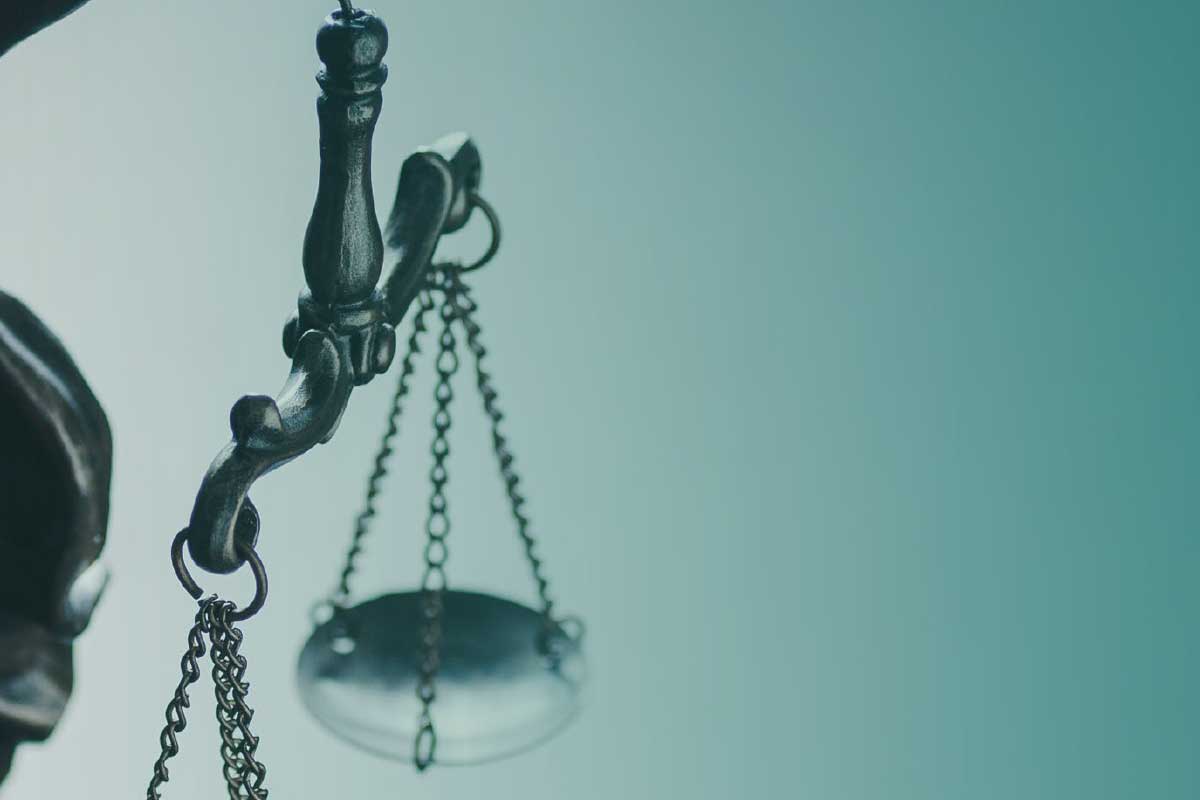The new EU Whistleblowing Directive is due to be transposed into national law by member states before the end of the year, protecting people who report illegal activity that they uncover in the course of their employment. Businesses and government agencies that are subject to the directive’s requirements must implement a confidential internal reporting system for whistleblowers. They must also take steps to support the reporting persons and ensure there is no risk of retaliation.
The legislation has been praised for its ambition, with Simon Gerdemann and Ninon Colneric writing in an article for the European Labour Law Journal:
“Based on a Commission proposal of 23 April 2018 and accompanied by an intensive policy debate, the final version of the Directive represents the most far-reaching piece of European Union legislation in the field of whistleblowing law to date, both in terms of depth and scope of regulation.”
Anti-corruption campaign group Transparency International welcomed the directive, stating that there were some areas of its scope that could be strengthened, but that:
“The directive provides strong common minimum standards for the protection of whistleblowers in Europe. Member States should transpose those provisions in line with the spirit of the directive, which is to provide a high level of protection for whistleblowers.”
The directive covers breaches of EU law in a wide range of areas, from nuclear safety to financial services and public health.
1. Deadlines for transposition into national law
Here are the deadlines pertinent to the EU Whistleblowing Directive:
- Member states are required to transpose the directive into national law by 17 December 2021
- Businesses and government organisations with more than 250 employees and municipalities serving 10,000 or more people must have an internal reporting system in place by 17 December 2021
- Businesses and government organisations with between 50 and 249 staff must have an internal reporting system in place by 17 December 2023
2. What is the current status?
| Country | Status |
| Austria | Austria is yet to implement the new whistleblowing rules. |
| Belgium | The Belgian House of Representatives has received a resolution to incorporate the directive into national law on 9 January 2021. It is currently in transit through the legal system. |
| Bulgaria | The Bulgarian Ministry of Justice has convened a working group to discuss transposing the directive into national law. It held meetings in July 2021 but progress might be hindered by the political situation in the country, where a caretaker cabinet has been installed after elections in April and July 2021 failed to form an outright government. |
| Croatia | The Croatian government issued an invitation for stakeholders to apply to join a working group on amending the existing Law on Protection of Reporters of Irregularities. The closing date was 7 June 2021. |
| Cyprus | The government opened discussions on the new law in February 2020. However, there is no public information about the progress of the legal process since then. |
| Czech Republic | The bill to adopt the Whistleblowing Directive is currently working its way through the Czech Parliament. |
| Denmark | The Danish Parliament adopted the Whistleblower Protection Act at the third reading on 24 June 2021. |
| Estonia | The Estonian Whistleblower Protection Act is currently in draft form and is expected to be brought into law as soon as the public consultation ends and is acted upon. |
| Finland | Public consultation on the draft government proposal to transpose the directive finished in August 2021. It is now expected to be presented to parliament in the last week of September. |
| France | A draft law aimed at making the existing Sapin 2 anti- corruption law more robust and exceeding the minimum standards set out in the EU Whistleblowing Directive was published in July 2021. It will be discussed in parliament in the autumn. |
| Germany | The Federal Ministry of Justice issued a draft law to implement the directive in December 2020, but it was rejected by two of the parties in the governing coalition as it went beyond the minimum requirements set by the EU. With elections happening in late September 2021, |
| Greece | In May 2020 the Greek Minister of Justice drafted a legal proposal to transpose the directive into national law. Amendments were made as recently as April 2021.
The European Commission Rule of Law Report 2021 found that “A committee (consisting of a judge, lawyers, law |
| Hungary | Hungary has yet to make progress in relation to implementing the directive. |
| Ireland | The government gave approval to the General Scheme of a Bill to amend the Protected Disclosures Act on 11 May 2021. This will result in the transposition of the EU Whistleblowing Directive into Irish national law. |
| Italy | The Autorità Nazionale Anticorruzione (National Anti- Corruption Authority) produced guidelines updating the country’s existing whistleblowing policies in Resolution 469 on 9 June 2021. |
| Latvia | In August 2020, the government announced a draft law to amend the country’s existing whistleblowing legislation. |
| Lithuania | On 4 June 2021, the Lithuanian government issued a draft amendment to the country’s existing whistleblowing regulations, enabling it to include the requirements from the EU directive. |
| Luxembourg | Despite rumours of an impending draft proposal on whistleblowing legislation, there has been no public announcement of progress from the Luxembourg government so far. |
| Malta | There has been no public progress in amending the current whistleblower laws from 2013 to bring them in line with the new directive. |
| Netherlands | The standing committee for the interior in the House of Representatives has discussed an amendment to the current whistleblowing legislation in June 2021. Members have until 15 September 2021 to make written comments before it progresses further. |
| Poland | The last public announcement on the progress of transposing the directive in Poland came in December 2020, when Prime Minister Mateusz Morawieckz tasked the Ministry of Development, Labour and Technology with preparing the draft law. |
| Portugal | A draft bill is currently making its way through the Portuguese Parliament, having been discussed in June 2021. |
| Romania | Romania opened a public consultation on draft proposals for integrating the directive into EU law in April 2021. The Ministry of Justice will analyse the replies and use them to form a final document before putting it to parliament. |
| Slovakia | Slovakia passed a Whistleblowing Protection Law in 2019. It established an independent body to protect whistleblowers, raise awareness of whistleblower protection and provide compensation for certain cases. In February 2021, the country appointed its first director and, it is thought, this might complete the country’s necessary preparations for transposing the directive. |
| Slovenia | Minister of Justice Marjan Dikaučič confirmed that the bill incorporating the directive into law would be ready for parliament in “early autumn”. |
| Spain | The Spanish Congress voted against a proposal for transposing the directive into law in June 2020, as it was not deemed sufficiently robust. The country held a public consultation into another proposal that ended in January 2021 but nothing else has been announced publicly since. |
| Sweden | The Swedish government submitted a bill in May 2021 that proposes to transpose the EU Whistleblowing Directive into law. It would exceed the minimum requirements made by the directive and, if accepted, will come into Swedish law on 17 December 2021. |
3. Whistleblowing in the UK
The UK has its own whistleblowing legislation, within the Employee Rights Act. However, it applies only to existing workers. The EU Whistleblowing Directive protects a much wider range of reporting persons. The UK law also only deals with retaliation against workers, making no provision for mandatory reporting channels within organisations.
Although the UK is no longer a member of the EU, businesses with bases within the union will have to adhere to the directive. In addition, any UK businesses wanting to take part in procurement within the EU or seek investment from shareholders in any of the 27 member states would be advised to put in place employee protections that are on par with the EU requirements.
4. Challenges to transposition
There are a host of challenges to the full transposition of the directive across the union.
4.1 Political upheaval
Bulgaria has failed to decide on a clear winner at two elections in 2021, with major parties refusing to enter into coalition negotiations with each other. In Germany, there are elections scheduled for September, too. When there are imminent changes in governments, it is difficult to complete the required legislative process for the transposition of the EU Whistleblowing Directive.
4.2 Lack of transparency
Although some EU member states display the progress of the proposed laws on their websites and through regular public statements, there are a number of nations where there is less clarity. For example, there has been no update from the Polish government since December 2020 when the country’s Prime Minister announced the department tasked with creating the law.
4.3 Lack of public consultations
Public consultations have taken place in a number of states, with the first Spanish consultation leading to the proposal being discontinued and a new proposal being put forward. However, jurisdictions such as Austria and Luxembourg have not asked for public input to their process even though the deadline is approaching.
4.4 The pandemic
Understandably, governments have been busy dealing with the pandemic over the last 18 months. This may have led to delays and deferments to legislative activities unrelated to fighting and recovering from the disruption of COVID-19.
4.5 Scope of transposition
There is much debate in some countries on whether to expand the scope of their new laws beyond what is expected by the directive. In Germany, one attempt to introduce a law was vetoed by parties that did not want additional requirements placed on top of the mandatory ones. Alternatively, Sweden is promising a law that exceeds the minimum requirements.
As the directive only covers breaches of EU law in the internal market, campaigners such as Transparency International are lobbying for member states to extend the protection to whistleblowers who uncover breaches of national law, too.
Although all countries will reach the minimum requirements once they transpose the directive, there will be a discrepancy in whistleblowing laws across the union. Those with high standards might be frustrated by the less stringent legislation in other nations.
5. Looking forward
It seems unlikely that, given the short time frame, every EU nation will transpose the directive into national law by the deadline. For private sector businesses with 250 or more employees and municipalities with a population of 10,000 or more citizens, the preparations should not change. If you fall in this category, you will still be required to meet the minimum standards laid out in Directive (EU) 2019/1937 whether your national law makes reference to it or not.
6. What should employers do?
If you meet the above definition, you should prepare now for 17 December. You need to implement internal reporting channels that allow for confidential and secure reporting of illegal activity. You should have systems in place for an impartial person or department to accept reports, acknowledge them within seven days and then investigate them and provide feedback to the reporting person within a reasonable timeframe, capped at three months from the time of reporting. This should detail the appropriate action your company will take.
Any follow-up should include details of the appropriate action your organisation will take and how to escalate cases where the reporting person is unsatisfied with the result. The whistleblower can use external reporting channels if the issue is not resolved and, if that fails, opt for public disclosure when that is deemed to be in the public interest.
You also need to instigate training on how to make a report and how to receive a report of wrongdoing. All staff should know that any retaliation against whistleblowers is unacceptable and outlawed by the EU Whistleblowing Directive. Natural persons and legal entities alike need to understand the gravity of the consequences for allowing forms of retaliation to happen. They should also be aware of the penalties for offences against a reporting person such as dismissal without reasonable grounds, demotion, suspension, intimidation and more.
Employers must read the directive fully and understand their obligations and liabilities as well as the intersections with the General Data Protection Regulation (GDPR). They also need to know who can flag up a reportable breach. The directive not only applies to employees, but also to self-employed contractors, subcontractors, affiliates, trainees, executives, shareholders, volunteers, suppliers, prospective workers and anyone else who came across breaches of union law in a work-related context.
Privacy protection must be afforded to the reporting persons, their relatives and any colleagues who helped them make the report. In addition, anyone named in the report and accused of wrongdoing should also be allowed confidentiality as the investigation continues.
7. Conclusion
Whether your country’s government is ready or not, the new EU Whistleblowing Directive will come into force in December. So, you must be ready in terms of the reporting systems being in place, the workflow created and staff trained. Besides appointing internal stakeholders to manage the whistleblowing process, you also have to ensure the protection of the persons who make reports.
If you’re looking for an easy way to stay compliant with the EU Whistleblowing Directive, try IntegrityLog. It’s an internal reporting system that offers confidentiality, GDPR compliance, easy reporting and the ability to track the status of open cases. IntegrityLog can be tailored to the requirements of your specific organisation.
Request a demo or request a 14-day free trial to find out how to create a compliant whistleblower reporting system for your organisation.
8. References and Further Reading
Share this post
Article Summary
- 1. Deadlines for transposition into national law
- 2. What is the current status?
- 3. Whistleblowing in the UK
- 4. Challenges to transposition
- 4.1 Political upheaval
- 4.2 Lack of transparency
- 4.3 Lack of public consultations
- 4.4 The pandemic
- 4.5 Scope of transposition
- 5. Looking forward
- 6. What should employers do?
- 7. Conclusion
- 8. References and Further Reading





